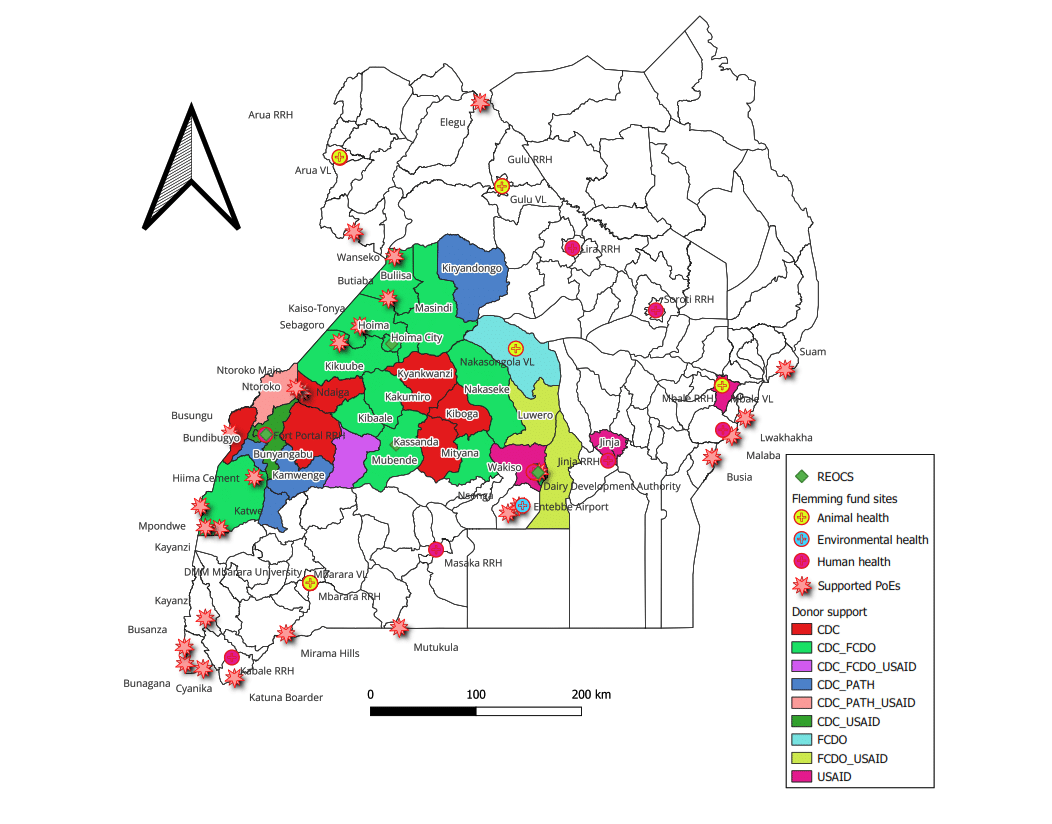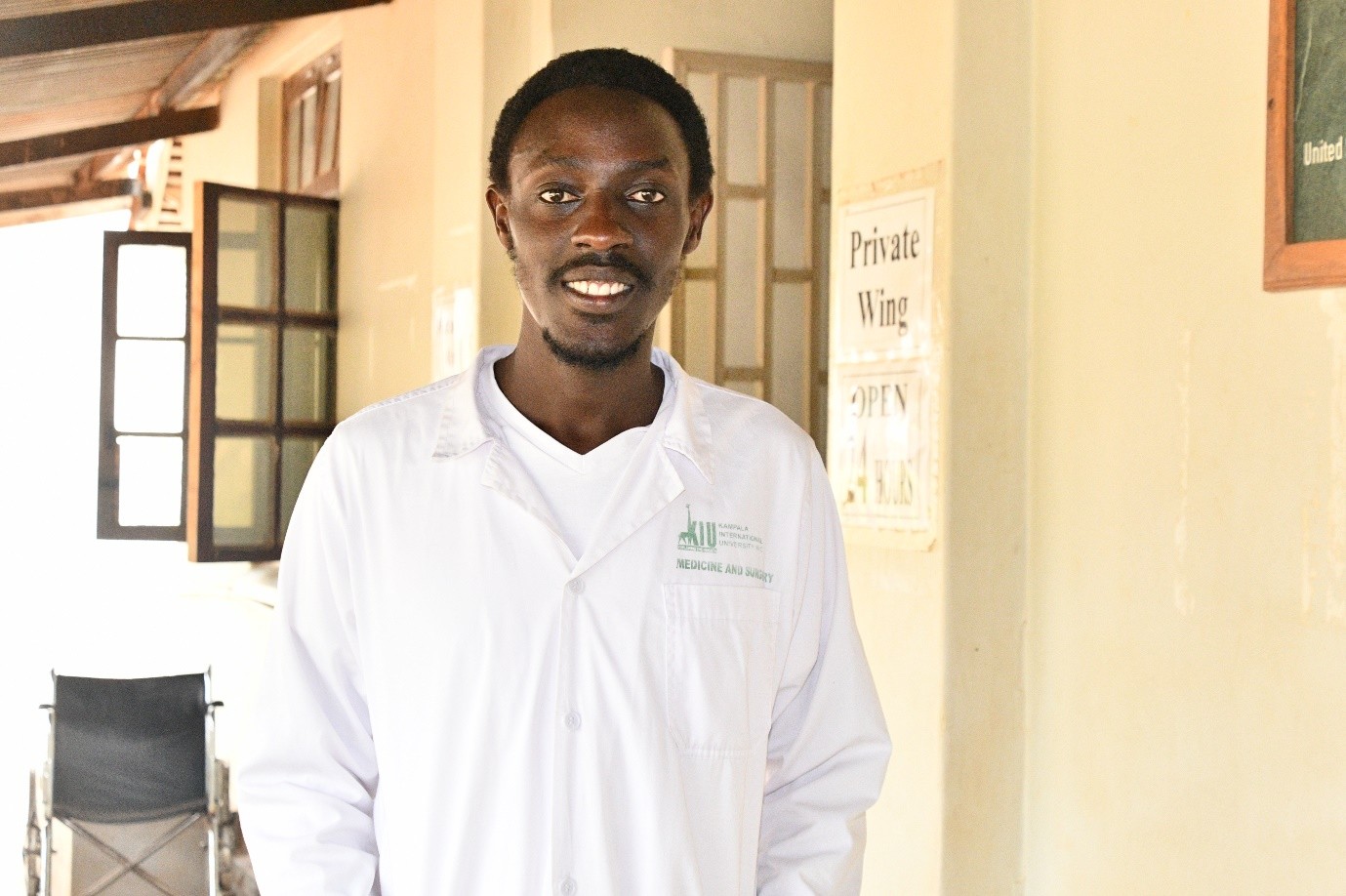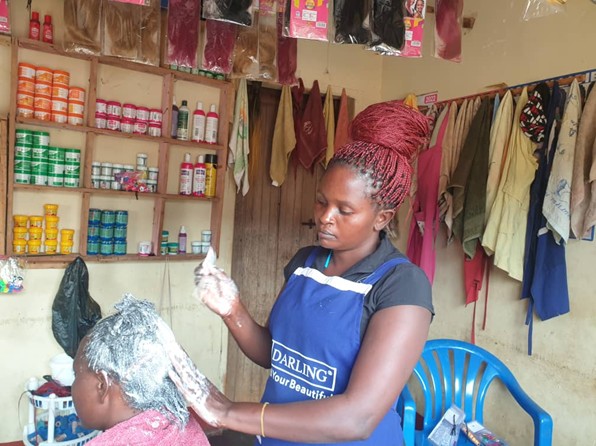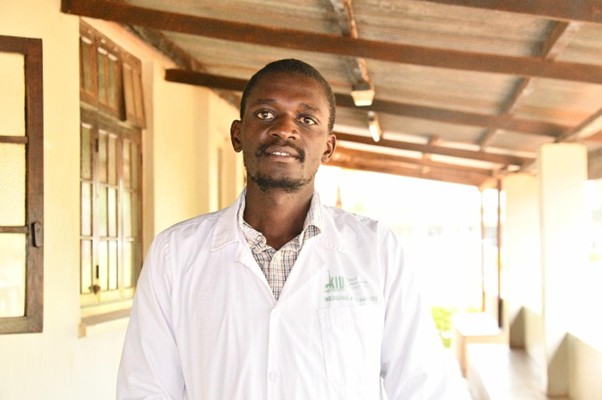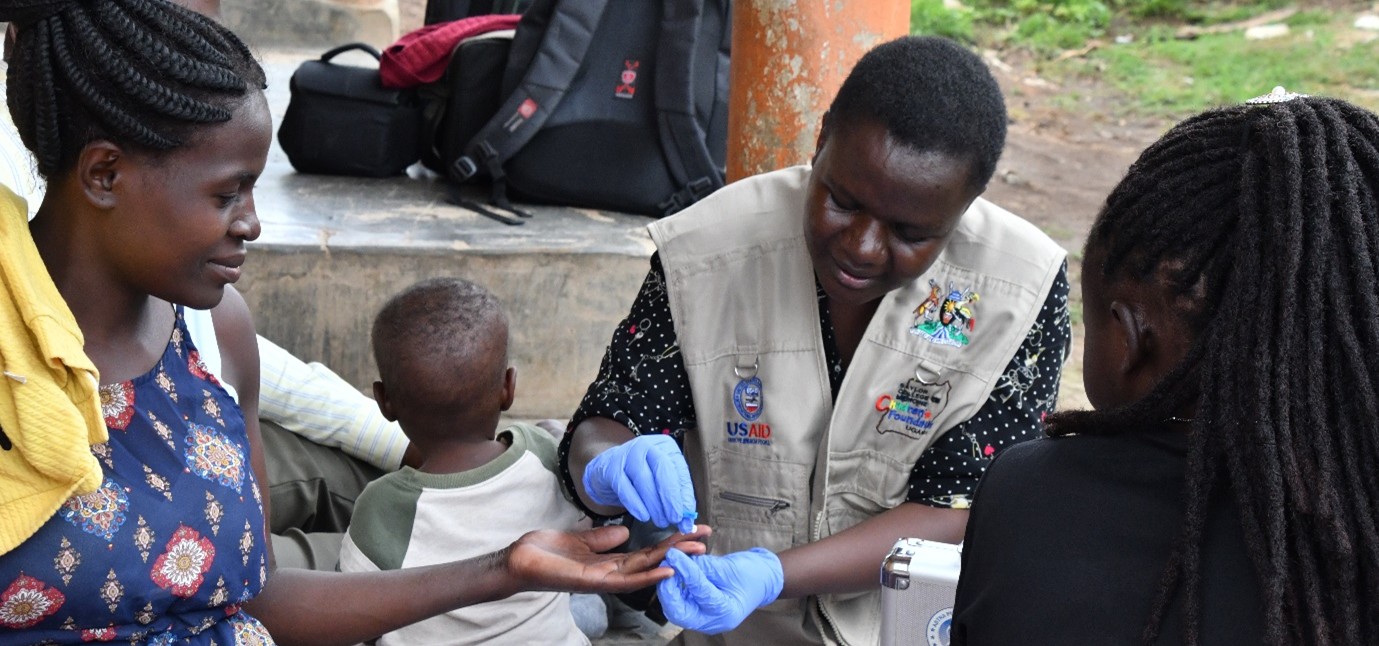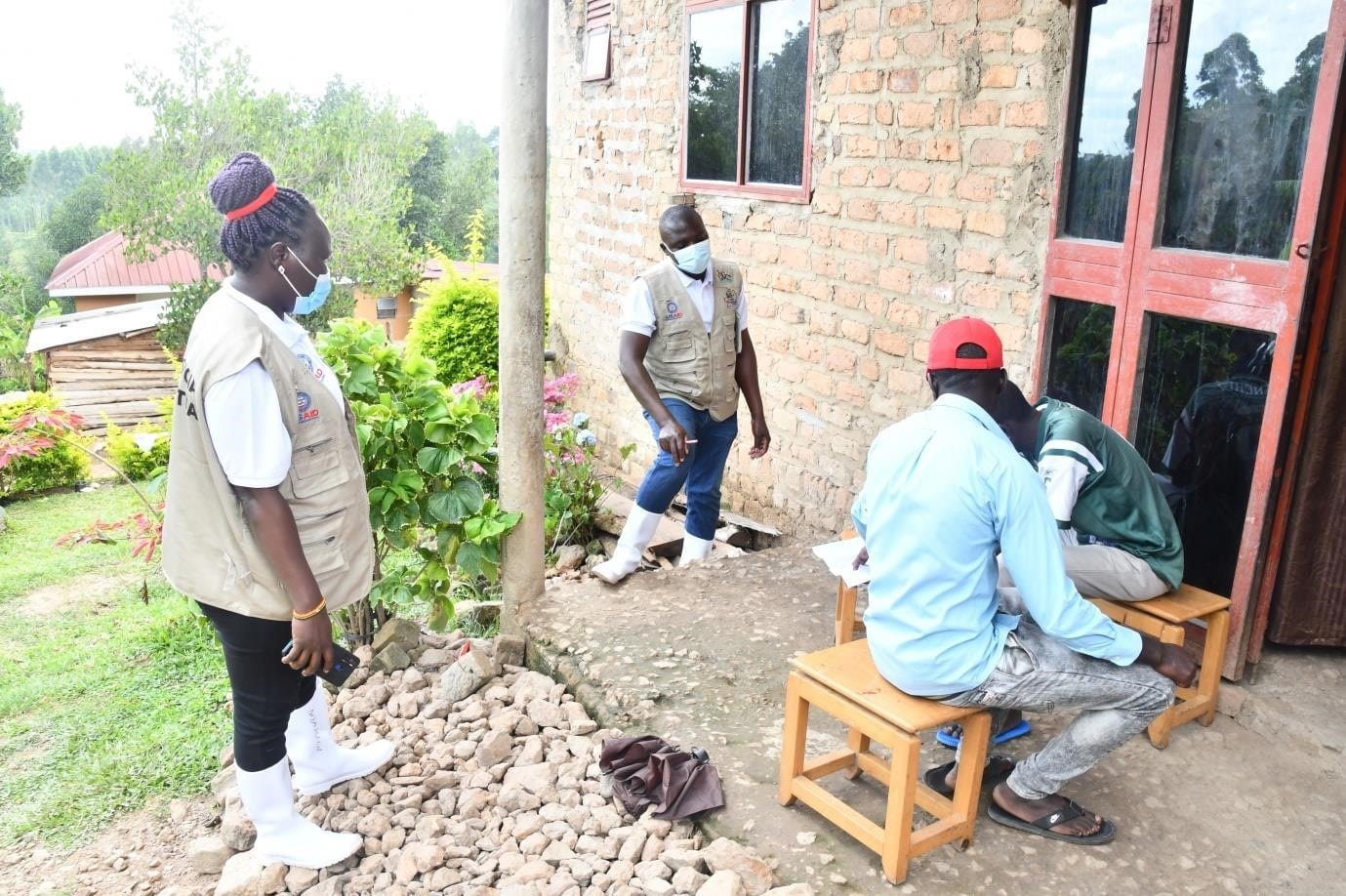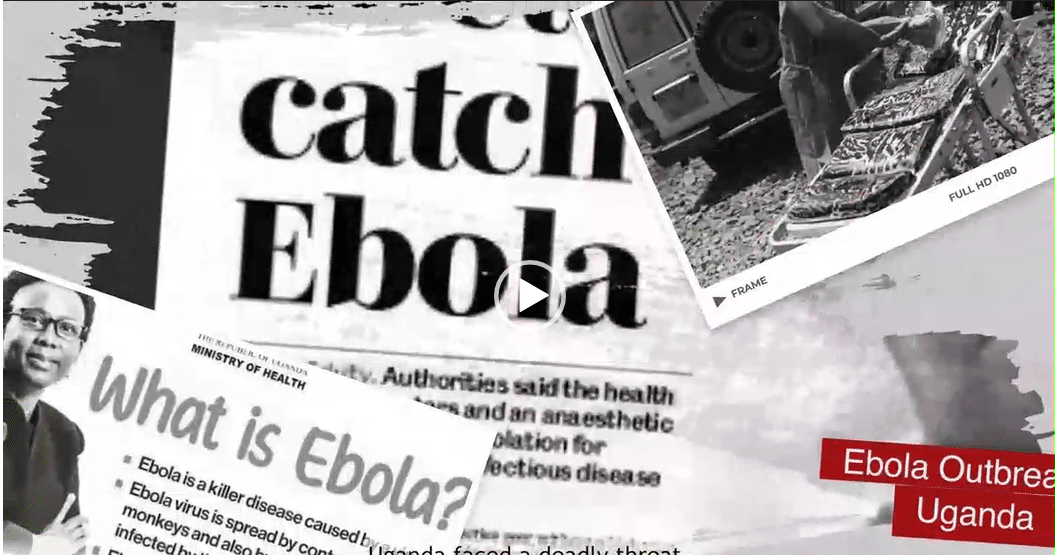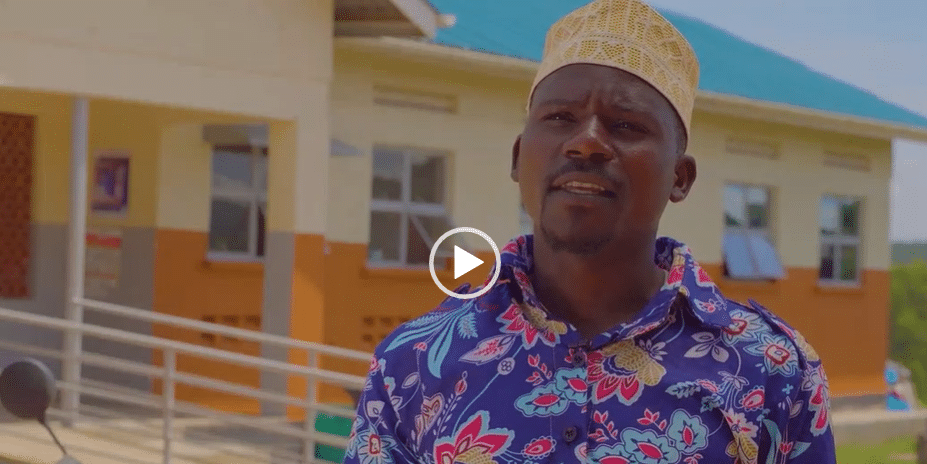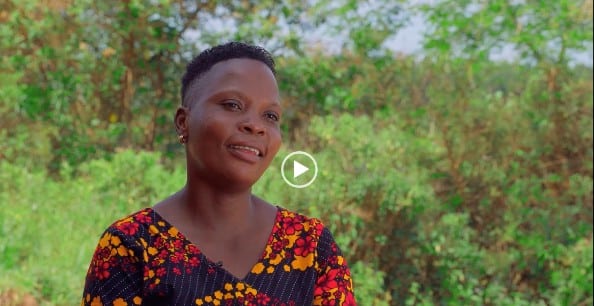We strengthen Uganda’s capacity to prevent, detect and respond to public health threats—protecting communities and saving lives.
In a world increasingly threatened by emerging and re-emerging infectious diseases, no country is truly safe until all countries are prepared. Uganda’s geographic location in the tropical belt of the Congo basin—an epidemic hotspot—and along cattle corridor, makes it especially vulnerable to these threats. Inspired by our vision of a world where children and their families live healthy and fulfilled lives, Baylor Foundation Uganda expanded its scope in 2017 to include the Global Health Security (GHS) Program. We believe that safeguarding health security means building systems that are proactive, responsive, and inclusive—from the national level to the grassroots.
Since expanding into the Global Health Security space in 2017, we have worked in partnership with government and development partners to build core public health capacities as outlined in the International Health Regulations (IHR 2005). Our focus is simple: prevent, detect, and respond—quickly and effectively. The sub-themes below capture the pillars of our contribution toward a safer, healthier Uganda and world.
Stopping Outbreaks Before they Start
Antimicrobial Resistance (AMR) Prevention and Stewardship:
Through the Fleming Fund Country Grant II, we apply a One Health approach that brings together human, animal, and environmental health actors to tackle a silent pandemic, the rising threat of drug-resistant infections. This coordinated effort is vital to protecting decades of medical progress.
Immunization and Vaccine-Preventable Disease Control:
Vaccines remain one of the most powerful tools in our public health arsenal. In partnership with UNEPI, we are scaling up equitable access to life-saving vaccines across Uganda. From measles to cervical cancer and malaria, we work to ensure no child is left behind—protecting communities, one dose at a time.
IDENTIFYING THREATS EARLY
Tracking Threats through Disease Surveillance and Early Detection: We bolster Uganda’s disease surveillance systems by equipping district surveillance teams, training emergency response personnel, and empowering community health workers to identify and report unusual health events. Every early detection helps avert potential outbreaks.
Building Laboratory Systems and Diagnostics that save lives: A strong laboratory system is at the heart of effective outbreak response. We support regional and district laboratories in adopting global standards such as SLMTA and LQMS. Also, our two-year Laboratory Leadership Program equips mid- to senior-level professionals with the skills needed to manage resilient, One Health-aligned laboratory systems.
Risk Communication and Community Engagement (RCCE): We implement strategic, multi-channel communication campaigns using radio, community dialogues, and local leadership to raise awareness, counter misinformation, and promote community-level action. When people understand the risks, they become active participants in their own protection.
Supporting Recovery and Rebuilding Stronger
Infection Prevention and Control (IPC) for safer healthcare.
We train, mentor, and support health workers in implementing WHO-aligned IPC standards and conduct regular facility assessments to strengthen infection control systems. From hand hygiene to waste management, our work helps reduce the risk of transmission in healthcare settings.
Survivor Care and Post-Outbreak Recovery
Our commitment continues long after an outbreak ends. Through the National Ebola Survivors Program, we provide comprehensive care—medical, psychological, and social—to help survivors recover fully and rebuild their lives with dignity and hope, journeying from survival to renewal.
